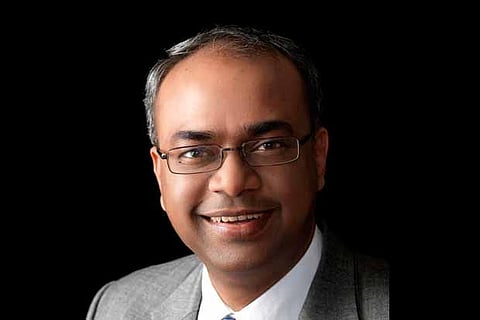

Chennai
Chennai can bank on its traditional advantage in sectors such as manufacturing, IT and BPO, says E Balaji, President - People Services, TVS Logistics (in picture). Noting that the core strengths will always prove to be beneficial in the long-term, he says slowdown may affect the cycle of hiring but it is a phase that comes with its ups and downs and goes on to cite the example of Telangana, which went through a lull three years ago.
Similarly, the migration of talent gravitates towards cities such as Mumbai, Delhi and Bengaluru considering the concentration of companies there.
As far as compensation is concerned, talent is less expensive in Chennai, he seeks to point out as he compares pay packets at a gross level with those getting hired in other metros.
Balaji also spoke about strategies that draw people to companies and how organisations hire the best talent.
Nearly four years ago, he joined the $1 billion TVS Logistics after almost two decades at the city-based MaFoi (later acquired by Randstad).
On his move, he says, “It is choice between breadth and depth. My earlier stint involved recruiting for customers and the thrust was on providing talent as a service to customer, who took the final decision. Here, acquiring talent means having domain knowledge and understanding the business completely.
I was drawn to a fast-moving company aspiring to grow globally,” he says.
TVS Logistics has 15,000 odd employees. The company adopting an inorganic growth strategy, has led to its footprints in multiple geographies.
“We have grown by acquisitions. So when you bring talent, harmonising them is a challenge,” Balaji says. The company takes a mix and match approach to hire people, scouting for talent as much in the campus as internally nurturing and grooming employees.
The general philosophy is to recruit internally for roles, which means sourcing to the extent of 70 per cent, rather than hiring candidates, who may be 90 per cent ready from the market. This is more viable, says the leader, who also believes millennial talent or the Twitter generation is more receptive to feedback and coaching as the talent scenario favours self-development in career advancement.
Balaji identifies fintech and business analytics as India’s next sunrise sector.
Visit news.dtnext.in to explore our interactive epaper!
Download the DT Next app for more exciting features!
Click here for iOS
Click here for Android